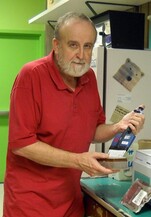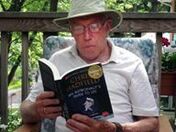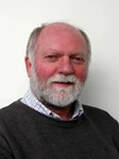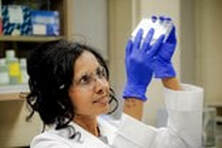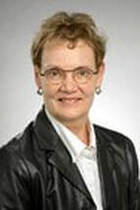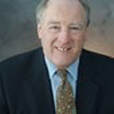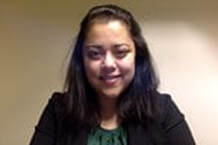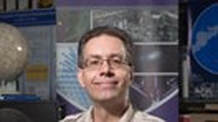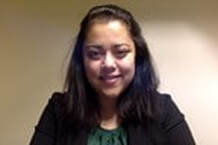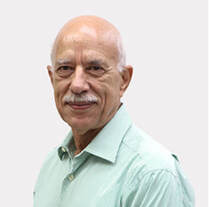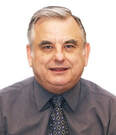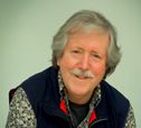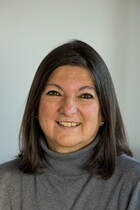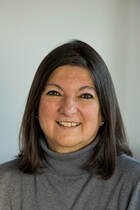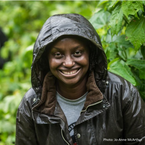Summer Lectures Club (SLC) agrees that the Speakers own all Copyright in their presentations, other than such content as may have been taken from other sources on the basis of “Fair Dealing” as provided under the Copyright Act, or the Speakers have explicit written approval to use certain copyright materials, and SLC will not post any part of the Program on our website without the Speakers' prior consent.
Our 2022 Season Was Very Successful
Thank you to our supporters
You will get a notification about our 2023 Season via Email
Below are the descriptions of our 2022 season to give you an idea of the variety of lectures we host. This will be updated with the 2023 lectures in the spring of 2023.
|
March 14th The Living Dead
Metabolic arrest: animals that are able to suspend animation, and what this means for humanity We have all seen science fiction depictions of humans placed in suspended animation for long journeys to distant galaxies. If ever this becomes a reality, it will be because we have learned from the adaptations of some animals and insects on earth, argues Carleton University Ottawa Molecular Physiology Professor Ken Storey. He speaks of his research into the multi-faceted body chemistry of a surprisingly wide array of mammals, reptiles and insects from the tropics to the arctic, that enables them patiently to wait out seasonably inhospitable environments. Prof. Storey invites you to visit his website, http://www.kenstoreylab.com/
|
|
March 21st An ecological visit to the high Arctic
Summer Lecture members who made the memorable 2016 trip to witness the re-greening of Sudbury will remember Laurentian University Alpine Ecology and Biology Professor Emeritus Gerard Courtin's intriguing introduction to the city’s wild-growing bonsai birches. Prof. Courtin leads us once more, this time to the far north to follow the evolution of arctic flora and fauna, the formation of ice ages, climate change in the arctic and the consequences of permafrost loss.
|
|
March 28th Do lobsters feel pain
When the Swiss Parliament decreed in March 2018, that lobsters must be killed humanely before being dropped into boiling water, the lobster industry tended to take the news lightly. Several more countries, however, now recognize that because decapod crustaceans have complex behaviour and nervous systems they merit inclusion in animal rights legislation, a development of considerable significance to the Canadian lobster industry. Biology Prof. Emeritus Robert Elwood, of Queens University, Belfast, Northern Ireland will show in this talk that he has demonstrated that decapod crustaceans, including lobsters, are highly likely to experience pain and have the capacity to suffer.
|
|
April 4th Beyond animal testing
Dr. Charu Chandrasekera is the founder and executive director of the Canadian Centre for Alternatives to Animal Methods located at the University of Windsor. As an experienced biochemist/molecular biologist, former animal researcher, and science policy expert, she advocates for a paradigm shift away from animal testing in the life sciences. She will discuss why animal testing is of little scientific value and ethically unjustifiable and how emerging technologies are poised to replace animal testing in disease research and drug/chemical safety testing.
|
|
April 11th How we can achieve zero emissions by 2050
Prof. Margot Hurlbert, University of Regina, Saskatchewan, Canadian Research Chair of the Centre for the Study of Science and Innovation Policy explains how reversing the worst effects of humankind’s contribution to climate change is attainable within a generation. As a contributing author to Working Group I and its report released in August 2021 Margot reviews some of the Intergovernmental Panel on Climate Change's main findings. In addition, based on her participation as a review editor and contributing author to Working Group II's forthcoming report on adaptation she covers the looming 'adaptation gap' and transformation required to reduce emissions to net zero by 2050. She reminds us that she lives, works and will address us from the homeland of the Métis/Michif Nation. The University of Regina is on Treaty 4 lands with a presence in Treaty 6 and we pay our respect to the Indigenous ancestors of this place and reaffirm our relationship with one another
|
|
April 18th Basil Kalymon Professor Emeritus at The Richard Ivey School of Business, Toronto, Ontario, Canada - The Ukraine
Professor Kalymon is of Ukranian extraction and heavily involved in supporting the Ukranian war effort. He has nonetheless agreed to take time out of his busy schedule to speak to us on the tragedy that is unfolding.
|
|
May 2nd Lahore - The Cultural Heart of Pakistan
We join Architect Shermeen Beg to begin our journey with an introduction to the Mughals and the construction of the Lahore Fort under Emperor Akbar. By 1707, with the Mughals significantly weakened, the Sikh army led expeditions against them and ultimately gained control of the city. Following Ranjit Singh's death in 1839 the empire was severely weakened once again due to the internal divisions and mismanagement providing an opportune time for the British to establish a Lieutenant Governorship in Lahore.
This illustrated talk will focus on architectural projects from each of these time periods to showcase a modern city as diverse as its people. |
|
May 16th Do look up!
Physicist Prof. Peter Brown, in the Department of Physics and Astronomy in Western University, London, Ontario shares results of some of his research into meteors. His work has taken him to observational missions across the globe, from Edwards Air Force Base in California to the Canary Islands, to Mongolia. “I’ve been intrigued by meteors from a young age,” he says. “craning my neck skywards since early childhood – the only difference is I now have a battery of fully-automated camera stations at my disposal to relieve joint pain!”
|
|
May 30th The promise of small Modular Nuclear Reactors
Philip Kompass Manager, Corporate Communications of Canadian Nuclear Laboratories describes the developing technology of small nuclear reactors that can be installed for small communities. He shows how nuclear energy is safe, has low environmental impact and should be the solution to Canada’s energy needs for far-flung communities.
|
|
June 13th In the footsteps of Mimar Sinan
Join us as we travel to Istanbul, Turkey, a city of glorious palaces, religious and secular buildings, many dating from antiquity.Mimar Sinan is regarded as the city’s greatest architectural son. Born in 1490CE, he was chief architect for Ottoman Sultans Suleiman the Magnificent, Selim II and Murad III. Sinan was responsible for over 300 projects in the Ottoman World. In this illustrated talk we will examine his stylistic development from the Shehzade and Sulemaniye Mosques in Istanbul to the Selimiye Mosque in Edirne that are reflective of his apprenticeship, qualification and master phases.
As an aside, we will also visit Hagia Sophia, built as the largest church in Christendom in 537AD, modified by the Ottomans to a mosque in the fifteenth century, in 1935 under Kemal Attaturk converted to a museum, and in July 2020 reconstituted by President Erdogan, as a mosque once more. |
|
June 20th Between despair and hope: policy space for the US and Pakistan in Afghanistan
We remain in Istanbul for one more week, visiting with his Excellency Mr. Mirza Qamar Beg, who retired as Pakistan’s Ambassador to Italy, Slovenia, and Albania. Mr. Beg has been Commerce (and International Trade) Secretary of Pakistan, Chief Secretary, Balochistan (the Administrative Head of one of Pakistan's four provinces), and President, World Food Program (a prestigious UN agency dedicated to fighting hunger). Since retiring, he has served on the Board of Governors of the Central Bank of Pakistan and has been a Visiting Fellow, Cambridge University. We thank much admired Ms. Shermeen Beg to whom we are all in thrall for her truly outstanding architectural presentations, for prevailing on Mr. Mirza Beg to agree to kindly share his insights into this troubled relationship.
|
|
July 4th The future of fossil fuels
Speaker to be announced. With a wave of countries banning exploration, including France, Belize, Denmark, Ireland and New Zealand what lies ahead for the oil industry as we make the transition to green energy?
|
|
July 18th William Shakespeare's reception in France
Self-confessed Francophile and history scholar Frank Nicholson PhD, will explain why it took France’s cultural icons — from Racine to Voltaire to Victor Hugo — two centuries to come to appreciate the bard as much as we in the English-speaking world do.
|
|
August 8th The Impact of Social Media and Democracy
Tim Ewbank, of Cambridge, U.K. and current chair of one of the largest U3A groups in Britain, looks at how the phenomenon of social media has become pervasive in our lives, and the ways in which its everyday use influences our democratic processes. Finally he will examine the growing realisation of its impact and the various options being considered to better control its use.
|
|
Aug 15th The Columbian Exchange
Based on a term first coined in 1972 by Alfred W. Cosby with a book of the same title, Maria Chester, Art and Social Historian from Argentina and Venezuela, now living in Upper Burnmouth, Scottish Borders, U.K., joins us to explore the changes that began after the arrival in America of the Spanish Conquistadors. “The Columbian Exchange” is considered today as the “first globalization” in history. Many (most?) vegetables and fruits we eat today come from the Americas and were first domesticated and cultivated by the Inca or the Maya; domesticated animals from Europe, insects, seeds and disease travelled across the Atlantic with Columbus and those who followed him. The world ecosystems, world views and cultural habits collided. Nothing has ever been the same.
|
|
Aug 22nd Mixing genes
Social historian Maria Chester joins us once more, to describe one more lasting aspect of the Columbian exchange, the resulting ethnic make-up of the Americas. The conquistador voyages began an unprecedented reshuffling of Homo Sapiens Sapiens, starting in Columbus’s colony of Hispaniola. Fernando and Isabel of Spain encouraged intercultural coupling because they believed it would lead to Christian marriage. Later, slaves from Africa added to the gene pool. The mixing began at the top. Cortes was an example: he never tried to hide his illegitimate, hybrid children. His son Martin was sent to the Spanish court to serve as a page. Cortes even hired a lawyer to petition Pope Clement VII to legitimise Martin.
|
Aug 26 Conserving Gorillas - Conservation thru Public HealthDr. Gladys Kalema-Zikusoka
Founder and CEO, Conservation Through Public Health Conserving gorillas through a One Health Approach Striving for protection and harmony by supporting people, the gorillas, and the environment. Speaking to us from her home near the Bwindi Impenetrable Forest National Park in South-western Uganda, (find it on a map!) wild-life veterinarian Dr. Gladys Kalema-Zikusoka will describe how Conservation Through Public Health (CTPH) developed an approach to conservation through three integrated programs on conservation, public health and sustainable development including a social enterprise, Gorilla Conservation Coffee. |
|
September 5th It’s Labour Day . . . let’s have a party!
Is a Zoom party even practical? We think it might be. This is our last meeting of the summer, an opportunity for an experiment and a chance to learn something of the interesting lives of some of our members. We’re looking to recruit six or more Summer Lecture Club members who each in seven minutes or so can tell us a story, describe a favourite pastime, share a long-wished-for ambition, sing a song, or point out what we’ve done wrong and how we can all contribute to a great program next year.
There will be a short talk by Francine Allard who worked with Romeo Dallaire in writing his book about the genocide in Rwanda. Also, time permitting, Julian Sale will share images and stories from his road trip to Newfoundland this summer. We aim to announce the party line-up by July 31st this year. To join in the fun, send your name and topic to [email protected]. Don’t be shy, and don’t wait too long. Remember, we’ll only have time for a limited number of presenters! |
